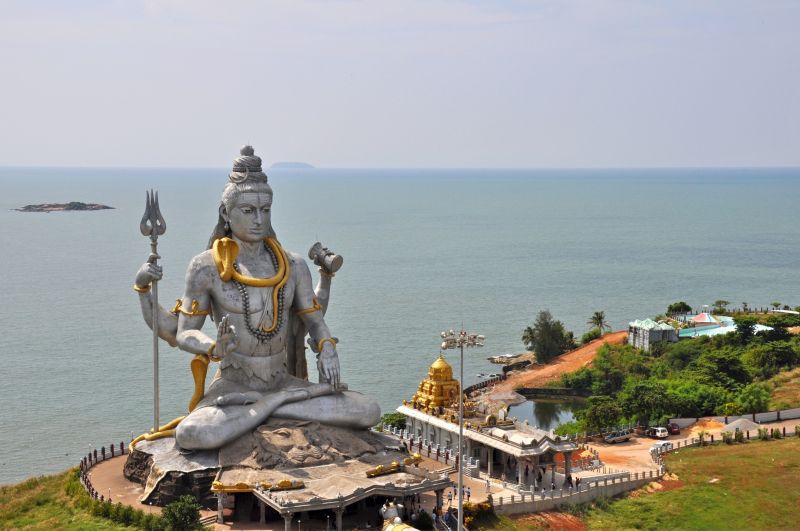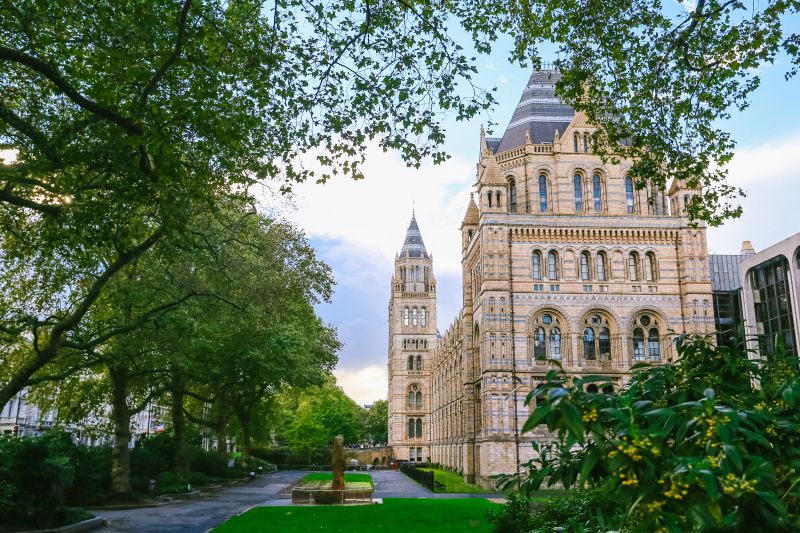What is the Visa Application Process and Processing Time for Mexico Visas for Af
Time:2024-05-25 Page View:438
Are you planning a trip to Mexico from Africa? If so, you're probably wondering about the visa requirements. Africatourism is here to help! We understand that getting a visa can be a daunting and time-consuming process for travelers. That's why we've put together a comprehensive guide on how to apply for a visa for Mexico from Africa, including all the key information you need to know.
Our guide covers everything from the types of visas available to the supporting documents you'll need to provide. Whether you're planning a short vacation or a longer stay, we've got you covered. So why not take a few minutes to read our guide and get started on your travel plans?
Visa Requirements

Traveling abroad can be an exciting experience, but it also comes with a lot of planning and preparation. One of the most important things to consider is whether or not you need a visa to enter the destination country. Visa requirements vary from country to country, and it's important to research and understand them before making any travel plans.
1. What is a visa?
A visa is a legal document that allows a person to enter, leave, or stay in a country for a specified period of time. It's typically issued by the destination country's government and can serve as a temporary residence permit. Depending on the country and purpose of travel, visas can range from short-term tourist entries to long-term work or study permits.
It's important to note that having a visa does not guarantee entry into a country, as border officials have the right to refuse entry for various reasons.
2. Who needs a visa?
Visa requirements vary depending on the destination country and the traveler's nationality. Some countries have agreements in place that exempt certain nationalities from visa requirements, while others require visas for all travelers. It's important to check the visa requirements for your specific situation, as they can also be influenced by factors such as the length of stay, purpose of travel, and type of passport held.
3. How to apply for a visa?
The process for applying for a visa depends on the destination country and type of visa being applied for. Typically, the applicant will need to fill out an application form, provide supporting documents such as a passport, photographs, and proof of travel plans, and pay a fee. Some countries may also require an in-person interview or medical examination.
It's important to note that the visa application process can take several weeks or even months to complete, so it's recommended to apply well in advance of travel dates.
4. What happens if I don't have a visa?
If a traveler arrives at a destination country without the required visa, they may be denied entry and sent back to their country of origin. This can result in lost money, time, and potentially missed travel plans.
It's always best to research and prepare for visa requirements before making any travel plans, to avoid any unexpected complications.
Application Process

When it comes to applying for jobs or universities, the application process can be a daunting task. It requires careful planning, preparation and attention to detail. In this article, we will explore the various steps involved in the application process and provide helpful tips and advice to guide you through it with ease.
Step 1: Research
Before you start your application, it is important to do some research and gather information about the company or university you are applying to. This includes their mission statement, values, culture and any specific job or course requirements. You should also research their competitors and the industry they operate in to gain a better understanding of the field.
Once you have gathered all the necessary information, you can use it to tailor your application to the organization or institution's needs and demonstrate how you would fit in with their vision and goals.
Step 2: Resume/CV Writing
Your resume or CV is the first impression you make on the employer or admission committee. It is crucial that it is well-written, concise and tailored to the job or course you are applying for. Your resume/CV should highlight your relevant skills, achievements and work experience in a clear and organized manner.
Make sure to proofread your document and have someone else review it as well to ensure there are no errors or inconsistencies. Additionally, consider the format of your document; it should be visually appealing and easy to read.
Step 3: Application Submission
Now that you have completed your research and written your resume/CV, it is time to submit your application. This may be done electronically or through traditional mail. Ensure that you follow all application instructions carefully, including required documents or forms and application deadlines.
Keep a copy of your application for your records and follow up with the organization or institution if you do not hear back within a reasonable amount of time.
Step 4: Interview Preparation
After submitting your application, you may be called in for an interview. This can be nerve-wracking, but proper preparation can help alleviate this stress.
Research common interview questions and practice your answers. Prepare a professional outfit to wear and plan to arrive early to the interview location. Additionally, research the organization or institution further and come prepared with questions for the interviewer.
Step 5: Follow Up
Following the interview, it is important to send a thank-you email or letter to the interviewer to express your appreciation for their time and reiterate your interest in the position or course. This can set you apart from other applicants and further demonstrate your professionalism.
Additionally, follow up with the organization or institution if you do not hear back within a reasonable amount of time.
Processing time

As the world becomes more interconnected, the ability to communicate effectively in English has become an integral part of daily communication. Whether it's for business, travel, or personal reasons, being able to speak English fluently is a valuable skill that can open up a world of opportunities.
The importance of English proficiency
English has become the universal language of business and finance, and proficiency can help individuals advance their careers and networking opportunities. An increasing number of companies require employees to have a certain level of English language skills, and some even offer higher salaries to those who are bilingual.
Moreover, English proficiency is crucial for international travel and cross-cultural communication. Knowing the language can make it easier to navigate unfamiliar territories, converse with locals, and make connections with people from different backgrounds.
The challenges of learning English
Learning a new language can be a daunting task, and English is no exception. Some of the biggest challenges include mastering grammar rules, building vocabulary, and developing pronunciation skills. Additionally, the variety of accents and dialects can make it difficult for non-native speakers to understand and communicate effectively.
To overcome these challenges, it's important to practice regularly and immerse oneself in the language. This can involve watching English movies, listening to English music, joining language exchange programs, or attending language schools and courses.
The role of technology in English language learning
The advancement of technology has revolutionized the way we learn languages. Online resources such as language learning apps, websites, and online tutors have made it convenient and affordable to study English from anywhere in the world. Virtual classrooms enable students to interact with teachers and classmates in real-time, and gamification techniques make language learning fun and engaging.
Meanwhile, artificial intelligence technology has made it easier to assess language proficiency and provide personalized feedback to learners. This technology can help learners identify areas of weakness, track their progress, and adjust their learning pace accordingly.
The future of English language learning
The demand for English language proficiency is expected to grow as the world continues to become a more connected and globalized society. Therefore, it's important for individuals to invest time and effort into learning and improving their English language skills.
The future of English language learning will likely involve a greater use of technology and personalization, with customized learning plans tailored to individual needs. Augmented reality and virtual reality technologies may also play a significant role in creating immersive language learning experiences.
The benefits of English language proficiency
English language proficiency can unlock a range of personal and professional opportunities. Whether it's advancing one's career, traveling to new places, or communicating with people from different backgrounds, English language skills can open doors and broaden horizons.
Furthermore, being able to speak English fluently can boost one's confidence and communication skills in general, leading to improved relationships and a greater sense of cultural awareness and understanding.
Validity of Visa

As the world continues to become more globalized, the importance of understanding visa regulations and requirements has become increasingly important. A visa is a conditional authorization granted by a country to a foreigner, allowing them to enter, remain within, or to leave that country. The validity of a visa determines the maximum amount of time a foreigner can stay in a country legally. In this article, we will explore the different types of visas and their validities, as well as the consequences of overstaying a visa.
1. Types of Visas and Their Validities
Visas can be categorized based on the purpose of visit, such as tourism, study, or work. Each type of visa has its own validity period, which varies depending on the destination country and the specific circumstances of the traveler. For example, a tourist visa may only be valid for 30 days, while a study visa may be valid for several months to several years.
It is important to note that the validity of a visa does not determine how long a traveler can stay in a country. Instead, it determines the period within which the traveler can enter the country. Once the traveler enters the country, the actual duration of their stay may be shorter than the validity period of their visa, as determined by the immigration officer at the point of entry.
2. Consequences of Overstaying a Visa
Overstaying a visa can have serious consequences, ranging from fines to deportation and even a ban on future entry into the country. It is important for travelers to understand the validity period of their visa and comply with the conditions set out by the destination country's immigration laws.
If a traveler wishes to stay in a country beyond the validity period of their visa, they must apply for an extension or change of status with the relevant authorities before their current visa expires. Failure to do so may result in their being considered an illegal resident and subject to legal penalties.
3. Ensuring Visa Validity
It is the responsibility of the traveler to ensure that their visa is valid before embarking on their journey. This includes checking the validity period, type of visa, and any other requirements or conditions associated with their visa.
Travelers should also be prepared to provide documentation to support the purpose of their visit and their ability to financially support themselves during their stay. This may include proof of employment, funds, or accommodation reservations.
4. Applying for a Visa
The process of applying for a visa can vary depending on the destination country and the type of visa required. It is important for travelers to research and understand the specific requirements for their intended destination and begin the application process well in advance of their planned departure date.
Visa applications typically require the submission of various documents, including passport details, photographs, application forms, and supporting documentation. Additionally, some countries may require a personal interview with the applicant as part of the application process.
Visa Requirements

Entering a foreign country requires more than just a plane ticket and a passport. Depending on your destination, you may need to acquire a visa before you are allowed to enter. While each country’s requirements may differ, understanding the basics of visa applications can make the process much smoother. In this article, we will explore the world of visa requirements.
What is a Visa?
A visa is an official document or endorsement stamped in a passport which grants permission to an individual to enter, leave, or stay in another country for a specific period of time. Visas can be granted for a variety of purposes such as business, tourism, education, or even temporary work. It serves as evidence that the individual has been authorized by the government to enter a country.
It is important to note that not all countries require visas for short-term stays. Many countries have visa exemption agreements with other nations, allowing citizens to travel freely between these countries without a visa.
Types of Visas
There are several types of visas, but the most common include:
- Tourist Visa: This type of visa is issued for those who plan on visiting a foreign country for leisure or recreational purposes.
- Business Visa: A business visa is issued to individuals who are traveling to another country for work-related purposes such as attending business meetings, conferences or negotiations.
- Student Visa: Students who are planning to study abroad are required to obtain a student visa from the respective country's embassy.
- Transit Visa: A transit visa allows passengers to travel through a country on their way to their final destination.
- Work Visa: This type of visa is needed for individuals who are looking to work temporarily or permanently in a foreign country.
Application Process
The visa application process may involve submitting a variety of documents such as your passport, visa application form, proof of financial stability, travel itinerary, and a letter of invitation from the host country. The requirements can vary based on the type of visa and the country being visited.
It is recommended to start the application process as early as possible to avoid any delays or issues. Some countries may also require an interview with a consular official to discuss the purpose of the trip and other relevant details.
Factors to Consider
When planning a trip, it's important to research visa requirements for your destination. Remember, visa requirements changes frequently. Additionally, keep in mind the following:
- Processing time: Visa applications can take several weeks to process, so plan accordingly.
- Cost: Some visas can be expensive, especially if you require expedited processing.
- Validity: Depending on the visa type, you may be allowed to stay in a foreign country for a specific period of time.
- Renewal: Some visas can be renewed, while others cannot. It is important to know if it is possible to extend or renew your visa while abroad.
Additional documents needed
English is an international language used for communication, trade, and technology, among other purposes. It is essential to develop English language skills, especially in today's globalized world. This article aims to provide guidance on improving English speaking skills and suggests additional documents needed for personal growth.
Importance of English Speaking
With the increasing demand for global communication, English has become a necessary skill in the workplace, education, and everyday life. Being able to speak English fluently can open up new opportunities for personal and professional growth. It helps in developing a better understanding of other cultures and builds connections with people from various countries.
It is crucial to improve English speaking skills to communicate effectively and confidently in English. One way to do this is by practicing daily with a language exchange partner or joining language classes to learn new vocabulary, grammar, and pronunciation rules.
Additional Documents Needed for Improving English Speaking
Besides regular practice, some additional documents can provide a significant boost to English speaking skills. These include:
Language learning apps
Language learning apps like Duolingo, Babbel, and Rosetta Stone offer interactive language courses to develop grammar, vocabulary, and conversation skills. These apps provide personalized learning plans, instant feedback, and gamified activities to make language learning fun and engaging.
English podcasts
English podcasts are a convenient and enjoyable way to practice listening and speaking skills. They cover various topics, such as news, entertainment, and education, and can be listened to while commuting, exercising, or doing daily tasks. Some popular English podcasts include BBC's Global News, TED Talks Daily, and Stuff You Should Know.
English novels and movies
Reading English novels or watching English movies can improve language skills by enhancing vocabulary, grammar, and pronunciation. Novels offer exposure to different writing styles, while movies provide examples of different accents and intonations. Some recommended books and movies for English learners are Harry Potter series, To Kill a Mockingbird, and The Shawshank Redemption.
Conversation clubs
Joining conversation clubs is an excellent way to practice English speaking skills and meet like-minded people. These clubs offer a chance to engage in informal conversation, discuss various topics, and get feedback from others. Websites like Meetup.com and Eventbrite offer various options for joining conversation clubs and events near your location.
Tips for Effective English Speaking
Besides using additional documents, the following tips can help improve English speaking skills:
Speak regularly
Practice speaking English regularly, even if it is for a short period every day. Pick a topic and speak on it, or have a conversation with someone to improve confidence and accuracy.
Listen actively
Active listening is crucial for effective communication. Listen to native English speakers, pay attention to pronunciation, and try to imitate their speech patterns.
Record yourself
Recording yourself while speaking can help identify mistakes, and work on improving them. It can also help in monitoring progress and analyzing improvement over time.
Processing time
In our fast-paced society, efficiency and speed are highly valued. One of the most important factors in achieving these is processing time. Processing time refers to the amount of time it takes for a system, computer, or person to complete a task from start to finish. In this article, we will explore the importance of processing time in communication and how it impacts our daily lives.
1. Communication
Processing time is crucial in communication, especially when we use technology to communicate. Have you ever experienced a delay in video calls or messages? This is often due to processing time. The processing time of the devices used affects the transmission speed and quality. Slow processing time can cause lags or loss of data, resulting in miscommunications or misunderstandings.
Moreover, language processing time plays an essential role in face-to-face communication. We need time to comprehend what has been said or to formulate our responses. People who speak a second language may require longer processing time to understand the message and come up with an appropriate response.
2. Work Efficiency
Processing time is also vital in work efficiency. The faster the processing time, the quicker the task can be completed. In industries such as manufacturing or logistics, reducing processing time enables more products to be produced or delivered in a shorter time, resulting in higher productivity and profit. In addition, minimizing processing time can also lower the risk of errors or defects in work, improving the overall quality of products or services.
With the advancement of technology, automation and artificial intelligence have been introduced to minimize processing time and increase efficiency. These tools can handle repetitive tasks, freeing up human resources for more complex work that requires problem-solving and creative thinking.
3. Decision Making
Processing time also plays a role in decision-making. In fast-paced environments such as the stock market or sports betting, determining the right decision in a short amount of time is crucial. Traders and bettors often rely on quick analysis of available data and processing the information rapidly to come up with a decision. Therefore, processing time is not only important for machines but also for human beings.
On the other hand, when making critical decisions that involve extensive analysis of data and factors, taking more processing time may result in better outcomes. In such situations, taking time to examine all options carefully can lead to a more informed decision.
4. Customer Satisfaction
Processing time also affects customer satisfaction. In today's fast-paced consumer market, customers expect instant responses and quick results. Slow processing time can lead to frustration and negative reviews, while fast processing time can lead to loyal customers and positive feedback.
For example, in the e-commerce business, fast delivery and efficient order processing are factors that determine customer satisfaction and retention. Improving processing time can give businesses a competitive advantage in the market and attract more customers.
5. Personal Life
Processing time does not only affect work and technology but also our personal lives. With a busy lifestyle, we often want things done quickly and efficiently. However, sometimes this mentality may cause us to overlook the importance of taking time to reflect and relax. Processing time can also refer to the amount of time we take to process emotions, information, and experiences, allowing us to make meaningful decisions and cultivate self-awareness.
Furthermore, minimizing processing time in our personal lives can lead to stress and burnout, affecting our mental health and relationships. Therefore, taking time to slow down and reflect may result in a more fulfilling and enjoyable life.
Validity of visa
As the world becomes more globalized and people travel between countries more frequently, having a valid visa is becoming increasingly important. A visa is a document issued by a country's government that allows an individual to enter, stay, or leave that country for a specified period. The validity of a visa is an essential factor to consider when planning to travel internationally. In this article, we will discuss the importance of visa validity, its types, and how to extend or renew it.
1. Types of visa validity
There are various types of visa validity that determine the duration of stay in a country:
a) Single-entry visa: This type of visa allows individuals to enter a country only once within the specified period. If they leave the country, they need to apply for a new visa to re-enter.
b) Multiple-entry visa: This type of visa allows individuals to enter and leave a country multiple times within the specified period. It is ideal for frequent travelers, as it saves time and money on visa application fees.
c) Long-term visa: This type of visa allows individuals to stay in a country for a more extended period, typically up to six months to one year. It is granted to those who need to travel regularly to visit family, attend business meetings, or study.
d) Short-term visa: This type of visa allows individuals to stay in a country for a shorter duration, typically up to 90 days. It is granted to tourists and those visiting for business purposes.
2. Importance of visa validity
The validity of a visa is crucial as it determines the duration of stay in a foreign country. If a person overstays their visa, they risk being deported, blacklisted, or banned from entering the country again. Overstaying a visa also affects future travel plans to other countries, as some countries ask for previous travel records before issuing a visa.
Having a valid visa also ensures that individuals adhere to the regulations and laws of the host country. It is essential to understand the visa requirements and restrictions before traveling to avoid any legal complications.
3. Extending or renewing a visa
In some cases, individuals may need to extend or renew their visas in a foreign country. The process varies from country to country, and it is advisable to seek assistance from the nearest embassy or consulate. Here are some general steps to follow:
a) Check eligibility: Individuals need to check if they are eligible to extend or renew their visa by reviewing the host country's immigration policies.
b) Gather necessary documents: Individuals typically need to provide their passport, visa application form, and supporting documents such as financial stability, letters from sponsors, and travel itinerary.
c) Submit application and pay fees: Individuals must submit the application and pay the applicable fees. The processing time varies depending on the type of visa and the host country's immigration policies.
4. Tips for visa validity
Here are some tips to ensure that individuals have a valid visa:
a) Check visa requirements: Before planning an international trip, it is essential to research visa requirements and restrictions for the intended destination.
b) Apply early: It is advisable to apply for a visa well in advance to allow sufficient processing time and to avoid any last-minute complications.
c) Keep track of visa expiration dates: Individuals need to keep track of their visa expiration dates and plan accordingly for renewal or extension.
Cost of visa
Traveling abroad is an exciting and enriching experience. However, one of the necessary and sometimes tedious steps in planning a trip is obtaining a visa. The cost of visas varies greatly depending on several factors, such as the destination, the duration of the stay, and the purpose of the trip. In this article, we will discuss the different costs associated with getting a visa, and provide some tips on how to minimize those expenses.
1. Destination
The cost of a visa is primarily determined by the country being visited, as each destination has its own set of policies and requirements. Some countries may only charge a small fee, while others can be quite expensive. For example, a visa for the United States can cost up to $300. On the other hand, a visa for Thailand can be obtained for less than $50. It is important to research the visa requirements and fees for your selected destination ahead of time, so you can budget accordingly.
Additionally, some countries require that you purchase travel insurance as part of the visa process. This can add to the overall cost, but it is important to have coverage for unexpected events such as medical emergencies or trip cancellations.
2. Duration of stay
The length of your stay can affect the cost of your visa. Most countries offer visas for different periods, such as short-term (usually up to 90 days), long-term (up to six months or a year), or even permanent residency. The longer the duration of your stay, the more expensive the visa application fee is likely to be. Some countries, such as Australia and Canada, even charge a fee for every additional month that you stay beyond a certain period.
It is also important to note that some countries require a visa renewal or extension if you plan to stay beyond the original duration of your visa. This will involve an additional fee, so it is best to plan your itinerary carefully to avoid any extra expenses.
3. Purpose of trip
The purpose of your trip can also affect the cost of your visa. Some countries offer specific visas for certain purposes, such as work, study, or tourism. Each type of visa has its own set of requirements, and some may require additional fees or documentation. For example, a work visa may require a letter from your employer and proof of qualifications, while a student visa may require proof of enrollment at a school or university.
Additionally, some countries offer expedited processing for an extra fee, which may be useful if you need your visa urgently. However, this can add significantly to the overall cost of your visa application.
4. Application process
The cost of a visa can also depend on the type of application process you choose. Some countries offer online visa applications, which can be cheaper and faster than traditional paper applications. However, some countries require in-person interviews or biometric data collection, which can add extra costs for transportation or appointment fees. It is important to check the application process and requirements for your destination before starting the visa application process.
5. Tips to minimize visa costs
There are several ways to minimize the cost of obtaining a visa:
- Apply early: Many countries offer lower fees for visa applications submitted well in advance of the intended travel date.
- Research visa options: Some countries offer multiple types of visas for different purposes, so it is important to research which option is best for your specific needs.
- Use a travel agent: Travel agents can often assist with visa applications and provide guidance on the process. Some agents even offer discounts on visa application fees.
- Submit a complete application: Incomplete or inaccurate visa applications can lead to additional fees or delays in processing, so be sure to double-check all requirements before submitting your application.
Contact Us

